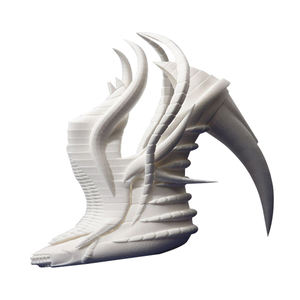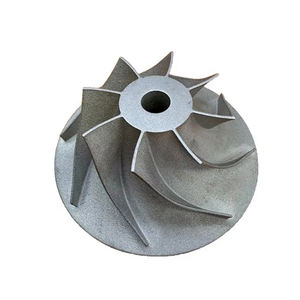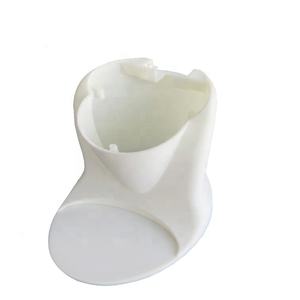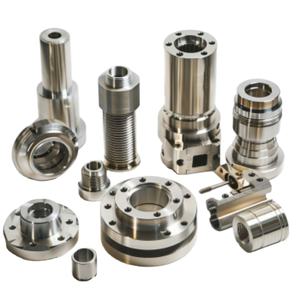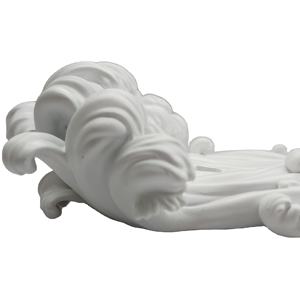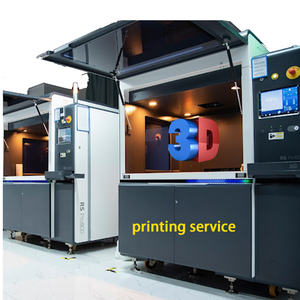Discover a professional 3D printing powder supplier
PRODUCT PARAMETERS
Description
Overview of CNC 3D Printing Service Rapid Prototype Prototyping parts with ISO9001 Certified Vacuum casting FDM, SLA, SLS, FFF
3D printing, also known as additive manufacturing, is a transformative technology that allows the creation of three-dimensional objects by depositing materials layer by layer based on digital designs. This process opens up a new world of possibilities in product design, customization, and production, revolutionizing various industries including healthcare, aerospace, automotive, consumer goods, and more.
Customization & Personalization: One of the key advantages of 3D printing is its ability to create highly customized products tailored to individual needs or preferences, from prosthetics to fashion accessories.
Complex Geometry: 3D printing excels at producing intricate shapes and geometries that would be extremely challenging or impossible to manufacture using conventional methods, such as internal lattice structures or organic forms.
Rapid Prototyping: It significantly speeds up the product development cycle by enabling designers and engineers to quickly produce physical prototypes for testing and refinement.
On-Demand Manufacturing: The technology supports small-batch or even one-off production runs economically, reducing the need for large inventories and allowing for just-in-time manufacturing.
Material Diversity: A wide range of materials can be used in 3D printing, including plastics, metals, ceramics, composites, and even biomaterials, each offering unique properties for specific applications.
Reduced Waste: As compared to subtractive manufacturing techniques, 3D printing only adds material where needed, leading to less waste and a more sustainable manufacturing process.
Features of CNC 3D Printing Service Rapid Prototype Prototyping parts with ISO9001 Certified Vacuum casting FDM, SLA, SLS, FFF
Design Flexibility: The technology enables the realization of complex designs without the constraints of traditional manufacturing tools and molds.
Functional Integration: Parts can be designed with integrated features such as channels, cavities, or interlocking components, which can enhance functionality or simplify assembly.
Lightweight Structures: Advanced 3D printing techniques allow for the creation of lightweight yet strong structures through optimized designs and the use of lattice structures or composite materials.
Improved Performance: By precisely controlling material composition and structure, 3D printed parts can exhibit enhanced mechanical, thermal, or electrical properties.
Cost-Efficiency for Complexity: While 3D printing may not always compete with mass-production methods for simple parts, it becomes increasingly cost-effective as the complexity of the part increases.
Innovative Applications: From medical implants that match a patient’s anatomy perfectly to aerospace components that reduce weight and increase efficiency, 3D printing pushes the boundaries of what’s possible in product design and engineering.
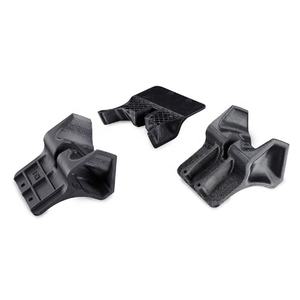
(CNC 3D Printing Service Rapid Prototype Prototyping parts with ISO9001 Certified Vacuum casting FDM, SLA, SLS, FFF)
Specification of CNC 3D Printing Service Rapid Prototype Prototyping parts with ISO9001 Certified Vacuum casting FDM, SLA, SLS, FFF
Our CNC 3D printing solution gives fast prototyping solutions for sectors requiring accurate and durable parts. We use advanced innovations like FDM, SLA, SLS, and FFF to satisfy varied job requirements. Each method suits different materials and layout intricacies. FDM functions well for solid, useful prototypes with products like abdominal or nylon. SLA generates smooth, detailed parts suitable for visual versions or complicated geometries. SLS manages high-strength components without assistance structures, ideal for end-use components. FFF supplies affordable printing with numerous thermoplastics.
All procedures comply with ISO9001 qualification requirements, ensuring regular quality and reliability. We maintain strict checks at every stage, from design to end product. Our team readjusts criteria like layer thickness, temperature level, and speed to match customer specifications. Tolerances as limited as ± 0.1 mm are attainable for essential dimensions.
Vacuum spreading enhances 3D printing for small-batch production. Silicone molds create approximately 20 duplicates utilizing resins that imitate final products. This technique suits prototypes requiring details appearances or versatility. It bridges the space between prototyping and automation.
Products available consist of plastics, materials, metals, and composites. Typical alternatives are PLA, PETG, TPU, and photopolymers. Metal alloys like aluminum or stainless-steel are utilized for CNC machining. We aid pick the appropriate product based upon stamina, warmth resistance, or aesthetics.
Lead times differ by innovation and part size. Easy FDM components ship in 1-2 days. Facility shanty town or SLS tasks take 3-5 days. Rush solutions are available for urgent needs. Files accepted are STL, STEP, or OBJ formats. Our engineers evaluate layouts for manufacturability and recommend optimizations.
Applications span vehicle, aerospace, medical, and consumer goods. Examples consist of functional engine parts, personalized medical tools, and ergonomic item housings. We handle jobs from solitary models to sets of 500 devices. Prices relies on material quantity, machine time, and post-processing. Surface finishes vary from raw prints to polished or painted options.
Quality reports with dimensional measurements are offered upon request. Every component undertakes aesthetic inspection and practical screening if required. We focus on clear interaction to line up results with client expectations.

(CNC 3D Printing Service Rapid Prototype Prototyping parts with ISO9001 Certified Vacuum casting FDM, SLA, SLS, FFF)
Applications of CNC 3D Printing Service Rapid Prototype Prototyping parts with ISO9001 Certified Vacuum casting FDM, SLA, SLS, FFF
CNC 3D printing services offer quickly prototyping solutions for markets needing exact personalized components. These services combine sophisticated manufacturing approaches like CNC machining with 3D printing modern technologies. The result is premium prototypes and functional components made rapidly. ISO9001 certification guarantees every action meets strict top quality criteria. This guarantees dependability for customers in automotive, aerospace, clinical, and consumer goods sectors.
Vacuum spreading is a vital approach for generating small batches of comprehensive parts. It makes use of silicone mold and mildews to duplicate intricate styles with precision. This functions well for testing product concepts prior to automation. FDM (Fused Deposition Modeling) is a typical 3D printing technique. It develops parts layer by layer utilizing polycarbonate products. FDM is economical and optimal for long lasting models.
SHANTY TOWN (Stereolithography) utilizes UV lasers to treat fluid resin into solid components. It produces smooth surfaces and fine information, best for visual models or complex components. SLS (Careful Laser Sintering) merges powdered materials like nylon with lasers. This method creates solid, heat-resistant components without needing support frameworks. It fits practical testing and end-use parts. FFF (Fused Filament Manufacture) works in a similar way to FDM yet highlights rate and product adaptability. It deals with various plastics for fast models.
CNC machining includes precision for metals or difficult plastics. It cuts away material from solid blocks to attain tight tolerances. This matches 3D printing when parts require added strength or details mechanical buildings. With each other, these approaches let organizations evaluate styles much faster and reduce development time.
Products range from plastics like abdominal muscle and polycarbonate to steels like aluminum and titanium. Engineers choose based on resilience, flexibility, or warmth resistance. Quality checks at every stage make sure parts satisfy requirements. This decreases errors and stays clear of costly delays.
Vacuum spreading sustains silicone molds for low-volume production. It reproduces structures and undercuts properly. This is useful for market testing or short-run production. ISO9001 accreditation indicates procedures are documented and repeatable. Customers depend on that their prototypes will certainly do as anticipated.
These services assist business innovate without high ahead of time prices. Rapid prototyping bridges the space in between concept and reality. Customized components can be made in days, not weeks. This dexterity is vital in competitive markets.
Company Profile
3D Printing Passion is a trusted global chemical material supplier & manufacturer with over 12-year-experience in providing super high-quality 3D printing powder and relative products.
The company has a professional technical department and Quality Supervision Department, a well-equipped laboratory, and equipped with advanced testing equipment and after-sales customer service center.
If you are looking for high-quality 3D printing materials and relative products, please feel free to contact us or click on the needed products to send an inquiry.
Payment Methods
L/C, T/T, Western Union, Paypal, Credit Card etc.
Shipment
It could be shipped by sea, by air, or by reveal ASAP as soon as repayment receipt.
5 FAQs of CNC 3D Printing Service Rapid Prototype Prototyping parts with ISO9001 Certified Vacuum casting FDM, SLA, SLS, FFF
What is CNC 3D printing? CNC 3D printing combines computer-controlled machining with additive manufacturing. It creates precise prototypes by cutting materials (CNC) or building layers (3D printing). This method suits complex designs needing high accuracy. Both processes work with plastics, metals, or resins.
Which materials are available? Common options include ABS, nylon, resin, titanium, aluminum. FDM uses thermoplastic filaments. SLA uses liquid resin cured by light. SLS uses powdered materials fused by lasers. Vacuum casting often uses silicone molds filled with polyurethane. Material choice depends on strength, flexibility, or surface finish requirements.
Why is ISO9001 certification important? ISO9001 certification means the service meets strict quality management standards. It ensures consistent processes, reliable outputs, and traceability. Certified providers follow documented procedures for design, production, and inspection. This reduces errors and guarantees parts meet client specifications.
What are vacuum casting benefits? Vacuum casting creates detailed, high-quality parts using silicone molds. It is cost-effective for small batches. The process replicates fine textures and complex geometries. It uses materials mimicking final production plastics. Parts made this way are ideal for functional testing or visual prototypes.
How fast is prototype delivery? Turnaround varies by method and part complexity. FDM or SLA prototypes often ship in 1-3 days. SLS or CNC machining may take 2-5 days. Vacuum casting requires mold creation, adding 3-7 days. Rush options exist for urgent projects. Timelines depend on design approval and post-processing needs.
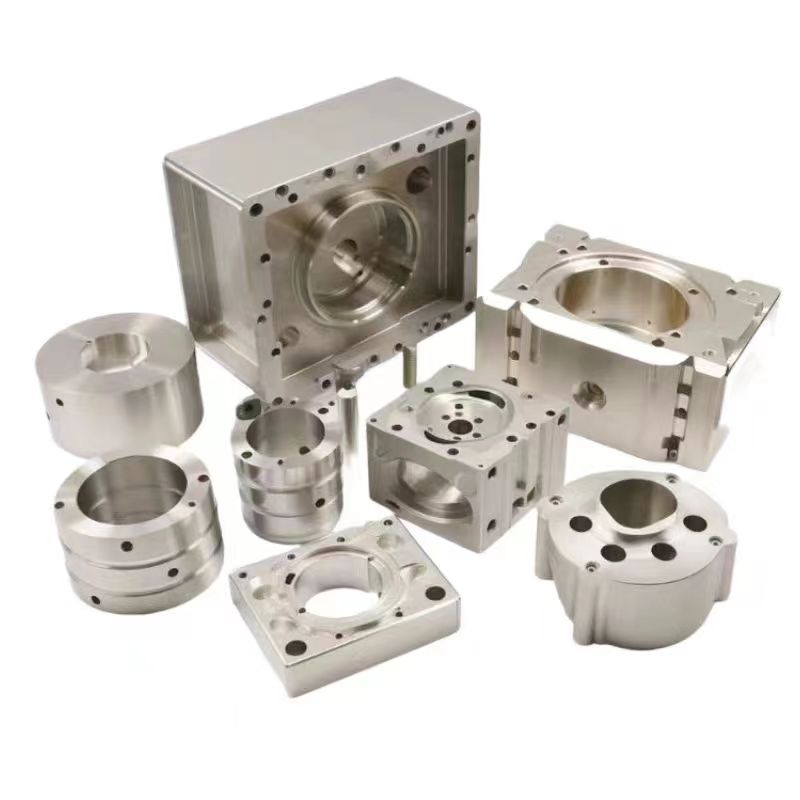
(CNC 3D Printing Service Rapid Prototype Prototyping parts with ISO9001 Certified Vacuum casting FDM, SLA, SLS, FFF)

